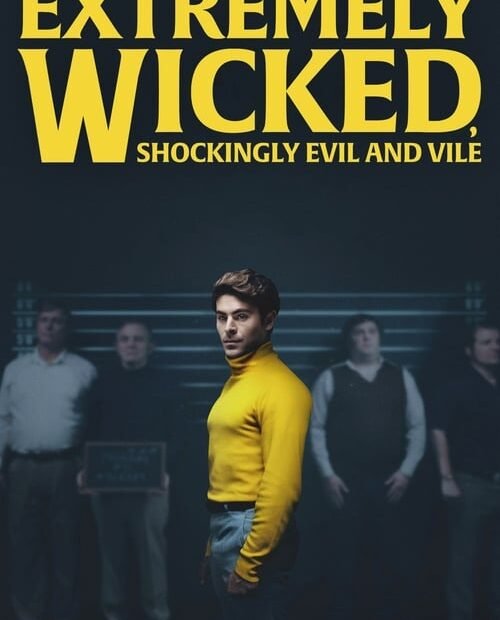Extremely Wicked, Shockingly Evil and Vile: A Darkly Comedic Exploration of Charisma and Chaos
Imagine, if you will, a world where charm and malevolence dance a waltz so intricate that you can’t help but wonder if the devil himself is taking notes. Welcome to the life of Ted Bundy, a man whose résumé includes everything from “handsome law student” to “serial killer extraordinaire.” And yes, he managed to squeeze in at least 30 murders along the way, because why not? Talk about multitasking!
In this biographical drama, we delve into the turbulent relationship between Bundy and his long-suffering girlfriend, Elizabeth Kloepfer, played with a mix of grace and exasperation by Lily Collins. Elizabeth, bless her heart, spends most of the film in a state of disbelief and denial that could rival any seasoned philosopher grappling with the concept of evil. Bundy, portrayed with unsettling charm by Zac Efron, is the epitome of a man who could sell ice to Eskimos while simultaneously plotting their demise.
As the film unfolds, we witness a series of events that could only be described as a masterclass in manipulation. Bundy flirts with the law, escapes from prison like he’s auditioning for a role in a heist film, and maintains his innocence with a smile that could charm the pants off a statue. It’s as if he’s the poster child for the phrase “Don’t judge a book by its cover,” except this book has a cover that’s both alluring and terrifying, much like a cat that looks cute but is secretly plotting your demise.
We’re treated to a philosophical conundrum throughout the film: how can someone so charming commit such heinous acts? It’s as if Bundy is a walking paradox, a living embodiment of Nietzsche’s “will to power,” using his charisma to exert control over everyone around him—including Elizabeth, who seems to oscillate between love and sheer incredulity. You can’t help but feel for her as she grapples with the realization that her charming boyfriend might just be a monster in disguise. Spoiler alert: He is.
As the courtroom drama unfolds, Bundy’s charm begins to wear thin, much like a well-loved pair of socks. The film cleverly juxtaposes his charming demeanor with the grim reality of his crimes, leading us to ponder the nature of evil itself. Is Bundy truly evil, or merely a product of his environment? As we watch him smirk through trials, one can’t help but think he’d make a fantastic poker player—his opponents would be too busy admiring his smile to notice the knife he’s hiding behind his back.
In a whirlwind of courtroom theatrics, we witness the unraveling of Bundy’s carefully constructed facade. Elizabeth’s journey from blind love to piercing clarity is both heartbreaking and darkly comedic. Watching her slowly connect the dots while Bundy continues to play the role of the misunderstood hero is a reminder that sometimes the most dangerous monsters wear the most charming disguises.
By the film’s end, we are left pondering the philosophical implications of Bundy’s actions. Was he simply a product of a society that glorifies charisma over substance? Or are we all, in some way, complicit in the allure of evil? The answer, dear readers, is as murky as a London fog. In the end, “Extremely Wicked, Shockingly Evil and Vile” leaves us with a chilling realization: sometimes, the most charming people in the room are the ones you should be most afraid of.
So, grab your existential dread and settle in for a film that’s equal parts gripping and grimly humorous. Just remember: charm can be a double-edged sword, and in the case of Ted Bundy, it’s a sword that’s been used far too many times for comfort.
